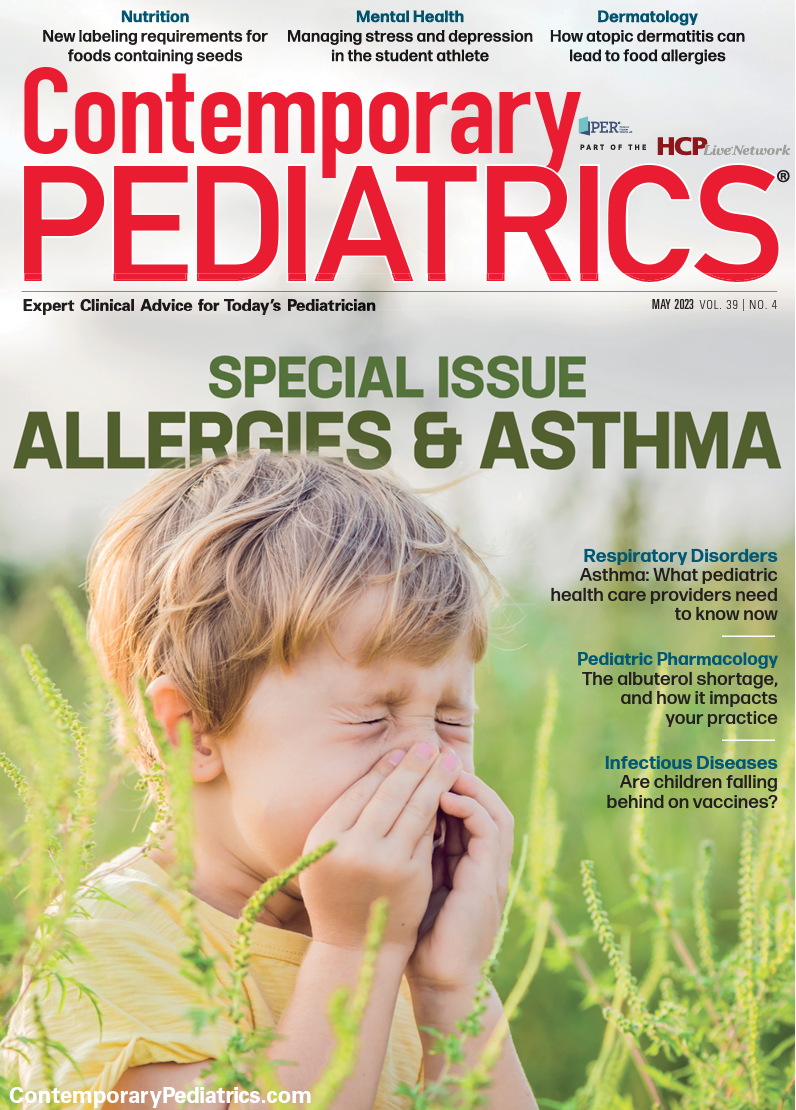Theoretical input on eating behaviors could transform data into clinical guidance
A recent study combined the efforts of child psychology and nutrition experts at Johns Hopkins University and several Australian research centers to investigate how much we really know about why children eat the way they do, and what impact food behaviors have on their overall development.
Teenager eating | Image Credit: © Prostock-studio - © Prostock-studio - stock.adobe.com.

The eating habits, behaviors, and preferences of children are hot topics among caregivers and clinicians alike, but a new study suggests that, for all the conversation about these topics, there’s still a lot to be learned.
The study, published in the International Journal of Behavior Nutrition and Physical Activity, combined the efforts of child psychology and nutrition experts at Johns Hopkins University and several Australian research centers to investigate how much we really know about why children eat the way they do, and what impact food behaviors have on their overall development.
The team reviewed literature on eating behaviors in children aged 12 years and under, focusing on what kinds of measures and interventions have been developed. The researchers concluded that existing data is largely relative or practical in nature, rather than theoretical. While existing data is helpful, without a theoretical framework to tie it all together, a cohesive plan for how to identify and respond to eating behaviors is difficult to develop.
Several models that investigate the eating behaviors of children highlight the need for greater standardization of definitions and measurements of eating behaviors, according to the report. The research team notes that eating behaviors are a “dynamic interaction” of many factors, including a child’s environment, psychological and psychosocial influences, preferences and tastes, and physical demands.
Understanding how these constructs relate to one another is a big missing element, according to the report, prompting the research team to suggest a need for more theory-based research and guidance on eating behaviors.
Recognizing the interwoven nature of food-related behaviors is important, the study team says, highlighting the necessity of using individualized assessments that take into consideration trends and patterns in eating behaviors over. There is a lot of data on what children need nutritionally, how eating behaviors impact health and wellness, and the psychology of food choices, but theory-based guidance on the targets for eating behavior interventions and how well they are working are topics that ideally would drive future research.
Jessica Peck, DNP, APRN, CPNP-PC, CNE, CNL, FAANP, FAAN, is a professor of clinical nursing at Baylor University and past president of the National Association of Pediatric Nurse Practitioners. While she was not involved in the study, Peck weighed in on the findings and says she agrees that more research is needed to develop a more holistic approach to assessing, preventing, and treating eating behaviors in children.
“Eating disorders and disordered eating behaviors are of alarmingly increasing concern following stressors experienced resulting from the COVID-19 pandemic,” Peck says. “Parents tend to express more concern and enragement over more socially contentious issues such as gender identity, sexting, and suicide. However, eating disorders are the most deadly mental health condition, and are often masked by socially desirable constructs of initial presentation.”
Using interprofessional collaboration to develop a scholarly framework for talking about eating behaviors in children would be beneficial, she says, and an important next step in understanding and treating disordered eating behaviors.
Reference:
Russell A, Jansen E, Burnett AJ, Lee J, Russell CG. Children's eating behaviours and related constructs: conceptual and theoretical foundations and their implications. Int J Behav Nutr Phys Act. 2023;20(1):19. Published 2023 Feb 15. doi:10.1186/s12966-023-01407-3
